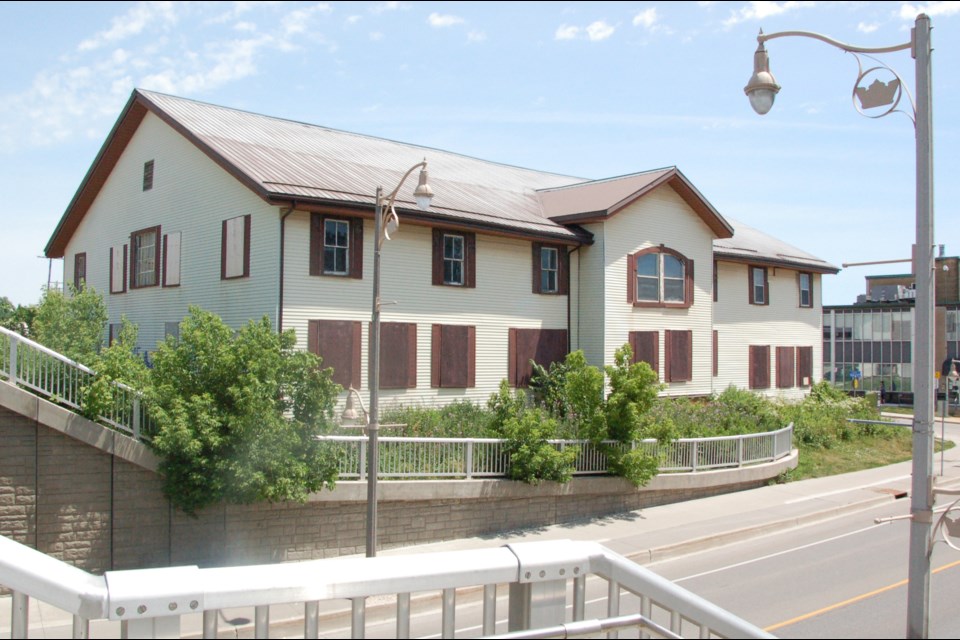For years now, the city’s pre-Confederation drill hall has sat empty on the fringe of Downtown, with its windows boarded up and doors locked. It’s a building without a purpose – at least not a contemporary one. But efforts are underway to change that.
The city, which gained ownership of the building in 2017, is currently accepting proposals on what its uses could be, whether they be private operations or something run in the public realm.
“Our heritage is not always expressed in grand buildings and castles. It is the stories that they tell and sometimes our most significant stories are embodied in everyday buildings … that were crafted with the tools of the time with the purpose of the time,” said Leanne Caron, city councillor and heritage advocate.
“It was built for the purpose of defending what was then Upper Canada, British North America … to train militia during a time when the Fenian invasions at the American border were threatening the future of our country.”
Built in 1866, a year ahead of Confederation, the yellow-sided building on the northeast corner of Wyndham and Farquhar streets was initially used as a training facility for Guelph’s voluntary militia, as well as to hold local agricultural shows. Through the years it has also operated as a general community hall and was occupied by a variety of industrial uses.
The designated heritage building has sat vacant since 2006 and is closed to public access, though the city is offering virtual tours.
“The best buildings for adaptive reuse are the ones that have a multi-purpose range of options and the drill hall is one of those buildings,” said Caron, noting the building is essentially a multi-level timber-framed barn. “The drill hall, to me, has such a wide range of potential adaptive re-uses – anything from artists' studios to exhibit space to meeting space to dance halls to offices to a coffee shop to galleries and greenhouses.
“It’s adaptability is a blank canvas.”
In an attempt to give the building a new life, city officials want to know what the options are. That’s why they’ve issued a call to community groups, non-profit and public organizations as well as developers for ideas and proposals.
“We’re going out to see what interest in the building is,” said Christine Chapman, the city’s manager of economic development. “It’s a really unique building.”
The call for proposals launched June 17 and runs through Friday, July 2, after which consultants and city staff will review submissions and reach out to as many as six proponents for more fulsome details about their idea, which will be presented to council in October.
There are plenty of examples of adaptive re-use of historic buildings that could be followed, said Caron, providing examples including the conversion of an early 20th century Toronto streetcar repair facility into a mixed-use centre for the arts; use of an 1856 school for Elora Centre for the Arts; and an 1887 railroad roundhouse in London, Ontario that’s now office space.
“Guelph really prides itself on its military history,” she said, pointing to In Flanders Fields author Lt. Col. John McCrae as an example. “This (drill hall) was the place where he entered military service, and his father … Col. David McCrae led the 11th Field Regiment and trained here as well.”
The city acquired the two-and-a-half-storey, 2,260 sq. m. drill hall as part of a 2017 land swap deal with Metrolinx intended to help bring about extended GO train service.
In a report to council last fall, city staff noted the building’s deterioration – leaky roof, presence of asbestos and mould, etc. – and foundation deficiencies. Stabilization work is underway at a cost of $900,000 and is expected to be completed next year.
In the report, staff estimate the price of restoration work to be $4 million to $5 million dollars.
